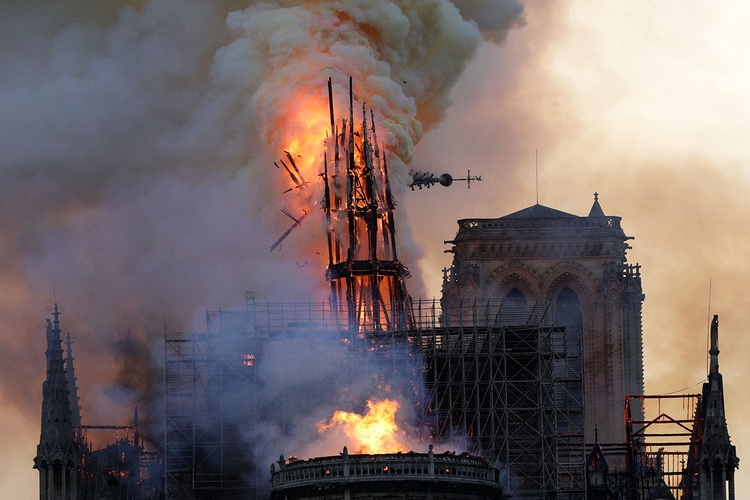In the New Republic, law professor and writer Jedediah Britton-Purdy counsel’s against searching for deeper meaning in the shocking fire at Notre Dame cathedral. As Britton-Purdy writes, we live in an age where political demagogues try to exploit public tragedy—from school shootings to environmental disasters—to advance their own agendas. In this climate, we should be wary of interpreting the fire as some symbol of the “state of the world at large.” Check out an excerpt below.
Hannah Arendt wrote in The Human Condition that the meaning of an age comes from the rare and exemplary acts that define it. It is a charismatic idea. But nothing has done more harm in this young millennium than seeing the time in the Arendtian light of its most dramatic acts. Think—as this day has made everyone do—a little longer about the terrible spectacles of terror attacks, from the collapsing World Trade Center towers to the metro bombings in Madrid and London to the massacres in Mumbai. These crimes demanded interpretation. Their interpreters christened this the age of terror, and gave the age its mission: a global war on Islamic extremism. Terrible and futile invasions came next. All of this was the crucible for the Islamophobia that is now inflecting reckless speculation about Notre Dame—and powering President Trump’s despicable effort to associate Congresswoman Ilhan Omar with the terrorists of September 11, complete with images of those towers burning and collapsing. Our symbols tend to get away from us.
One of the highest disciplines of civilization is to resist overloading catastrophe with meaning, turning it into symbol and portent. People who can do this are resistant both to the political strategy of terrorism and to its more dangerous counterpart, the politics of fear, elevating hyper-security above all other goods. We should assume and hope that the fire at Notre Dame is an accident, but also realize how we are seeing it through the lens of other catastrophes, in light of the theater of terror and the grotesque tragedies of our politics.
Even when we are the victims of catastrophe, we should refuse to be the audience. Meaninglessness is terrible, which is why the recourse to meaning-making is automatic, even addictive. But interpretation in terms of a general catastrophe, in terms of the state of the world at large, may be worse still.
Image via the New Republic.
